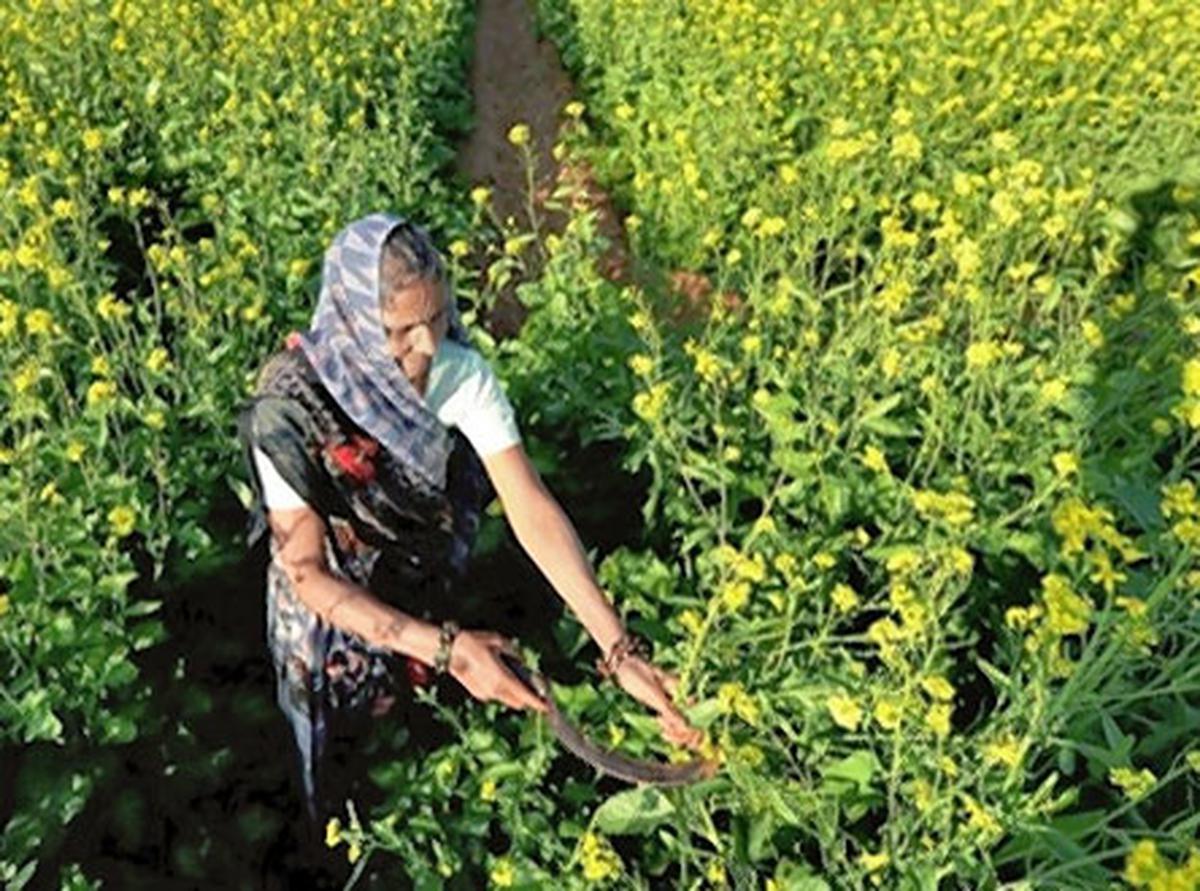Advocate Prashant Bhushan, for activist Aruna Rodrigues, submitted that India has 5,477 varieties of mustard, which would be at risk. File
| Photo Credit: Vijay Soneji
The Supreme Court on Wednesday expressed concern about the plight of thousands of women agricultural labourers in rural areas, traditionally engaged in de-weeding, who will be part of the human cost if the government permits the commercial cultivation of herbicide-tolerant crops such as GM mustard in India.
“In rural areas, women are experts in removing weeds. They are a part of the labour force in agriculture in India. It brings them employment… You know it is because women started agriculture that humankind stopped being nomads and we saw the sprouting of civilisations,” Justice B.V. Nagarathna observed orally while hearing challenges against the environmental clearance given to genetically modified mustard by the government.
Also Read | Centre must present correct information to Supreme Court on GM mustard, say scientists and activists
Justice Dinesh Maheshwari, the lead judge on the Bench, agreed that women were an integral part of the Indian agricultural landscape, from paddy fields to tea estates, across the country.
“They work in knee-deep water in the fields, bending the whole day and working,” Justice Nagarathna said.
Senior advocate Sanjay Parikh, for a petitioner, said the widespread use of herbicide-tolerant crops would encourage farmers to spray chemical weed-killers, leaving toxic chemical residue in large amounts on the crops.
‘Not meant for India’
“The Supreme Court’s own Technical Expert Committee [TEC] had said that these GM crops were not meant for agriculture in the Indian context. They may be suitable in the western context where there are large farms, but not here,” Mr. Parikh argued.
Advocate Prashant Bhushan, for activist Aruna Rodrigues, submitted that India has 5,477 varieties of mustard, which would be at risk.
He argued that the regulatory system under the Genetic Engineering Appraisal Committee (GEAC) which cleared the environmental release of Dhara Mustard Hybrid-11 (DMH-11), a genetically-engineered variant of mustard, was “horrendous” and riddled with conflict of interest.
Mr. Bhushan said the Department of Biotechnology had funded DMH 11 and then was part of the regulatory mechanism. The environmental release of the hybrid mustard variety was cleared despite warnings from the parliamentary committee and the Supreme Court’s Technical Expert Committee report calling for its ban. Besides, the government had not placed the biosafety dossier on the GM crop in the public domain.
He said the Supreme Court-appointed member of the GEAC, Pushpa M Bhargava, had said the commercial cultivation of GM Mustard would open the door wide for multinational corporations.
He said GM mustard, if approved for commercial cultivation, would be the first genetically modified food crop available to Indian farmers. He recalled how the BT Brinjal was withdrawn by the government years ago after the regulatory system was found riddled with inconsistencies.
“Hybrid crops should not be released in the open fields and allowed to contaminate other crops… It would trigger a chain reaction which would be irreversible,” he said.
‘Testing flawed’
Mr. Bhushan said the testing of the GM crop was “completely flawed” and there were no laboratories capable of doing the bio-safety tests.
“The TEC had suggested a 10-year moratorium period before the release of any GM crop and to use the interregnum to strengthen our regulatory and testing systems… Most European countries have banned genetically modified organisms (GMOs). Their release now would present a grave bio-safety hazard situation,” he submitted.
The government, on the other hand, in an affidavit, had said the GEAC approval to the Centre for Genetic Manipulation of Crop Plants (CGMCP) came after an exhaustive review which began in 2010.
The government said India was already importing oil sources from GM crops.
The Attorney General is scheduled to counter on behalf of the government on Thursday.




